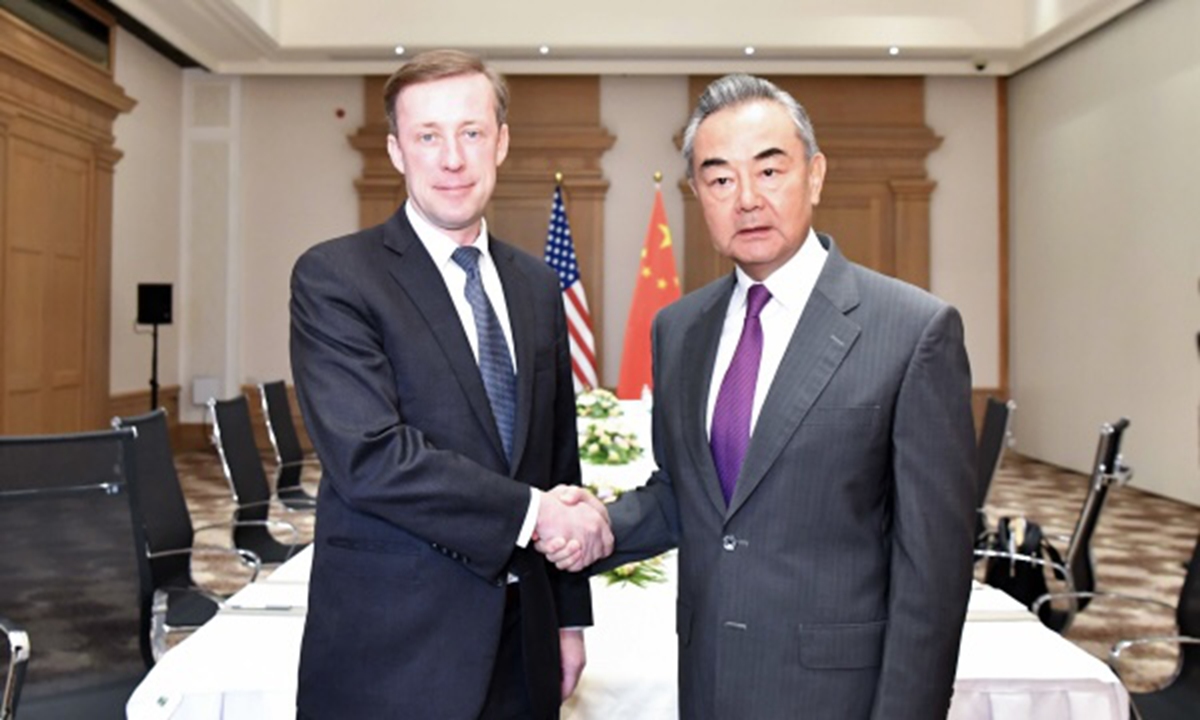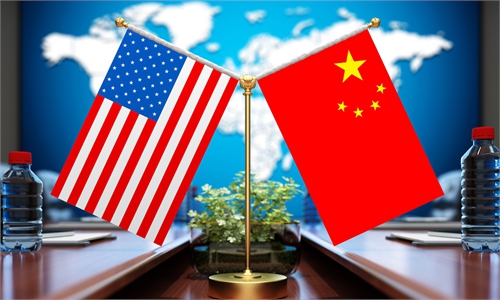Wang-Sullivan talks last more than 12 hours; Taiwan question takes up longest time, Chinese FM official told GT

Wang Yi, director of the Office of the Foreign Affairs Commission of the Communist Party of China (CPC) Central Committee, shakes hands with US National Security Advisor Jake Sullivan in Malta. Photo: Chinese ministry of foreign affairs
Wang Yi, director of the Office of the Foreign Affairs Commission of the Communist Party of China (CPC) Central Committee, and US National Security Advisor Jake Sullivan held multiple rounds of meetings in Malta from Saturday and Sunday. A senior official from Chinese ministry of foreign affairs who participated in the talks told the Global Times that the two sides held multiple discussions on topics including China-US relations, Taiwan, the Asia-Pacific situation, and the Ukraine crisis, for over 12 hours. The talks were candid, substantive and constructive.
The two sides agreed to continue to implement the important consensus reached by the two heads of state during their meeting in Bali, maintain high-level exchanges, stabilize and improve China-US relations.
The two sides introduced their respective domestic and foreign policies. Wang, also a member of the Political Bureau of the CPC Central Committee, highlighted China's advantages such as its socialist market economy system, the demand of its super-sized market, the supply advantage of its comprehensive industrial system, and the talent advantage of its vast high-quality workforce and entrepreneurs. These factors are the confidence and foundation of China's development. No country can obstruct China's development trajectory, the Chinese people's legitimate right to development cannot be deprived, said Wang.
Wang said China has always approached and developed China-US relations based on the three principles proposed by Chinese President Xi Jinping: mutual respect, peaceful coexistence and win-win cooperation. China opposes defining the entire China-US relationship solely through competition and rejects decoupling and breaking supply chain under the guise of "de-risking."
Wang expressed grave concerns over the US technological suppression of China and its unilateral and unreasonable sanctions on Chinese companies, organizations, and individuals, demanding an immediate stop.
The two sides spent the longest time on the Taiwan question. Wang comprehensively articulated China's firm stance, emphasizing that the essence and fundamental status quo of the Taiwan question is that both sides of the Taiwan Straits belong to one China. The root cause of the current tension in the Taiwan Straits lies in the increasingly provocative secessionist activities by the Taiwan's Democratic Progressive Party and the blatant support they receive from some external forces. The correct direction for the peaceful resolution of the Taiwan question is to resolutely oppose "Taiwan independence" and support China's peaceful reunification.
The official from Chinese ministry of foreign affairs said that both sides agreed that China and the US would soon hold consultations on Asia-Pacific affairs, maritime affairs, and foreign policy negotiations. They also explored dialogue in the field of artificial intelligence and further supporting and facilitating personnel exchanges between the two countries.
On the Ukraine crisis, Wang emphasized that China is not a party to the conflict, nor the cause of the crisis, and has always been dedicated to mediation and promoting talks, never fueling the fire or seeking advantage amid the chaos.


